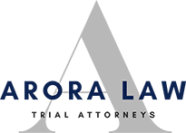Understanding Consumer Fraud
As consumers, we expect transparency, honesty, and fair treatment when purchasing products or services. However, in some instances, selling tactics may appear deceptive, and buyer’s remorse could lead individuals to place blame on the seller. Unfortunately, these scenarios can escalate, resulting in consumer fraud charges. If you find yourself facing consumer fraud charges in Georgia, it is crucial to seek the assistance of experienced fraud defense attorneys who understand the complexities of these cases.
At Arora Law, our team of skilled attorneys has a deep understanding of consumer fraud laws in Georgia and a proven track record of successfully defending clients. Contact us today for a free consultation, and let us protect your rights and fight for your future.
Consumer fraud refers to deceptive practices or misrepresentation used to deceive consumers during the purchase of goods or services. In some cases, consumers may unknowingly become victims of fraudulent schemes, while in others, false accusations may be directed against sellers due to buyer’s remorse.
Georgia Laws on Consumer Fraud
Georgia has enacted several laws to safeguard consumers from fraudulent practices. Key consumer protection laws in Georgia include:
- Fair Business Practices Act: This law prohibits unfair and deceptive acts or practices in the conduct of consumer transactions, ensuring that businesses operate ethically and honestly. Furthermore, the Fair Business Practices Act includes provisions that specifically govern certain types of businesses, such as health clubs, telemarketers, and internet-based businesses.
The Governor’s Office of Consumer Protection offers examples of business conduct that contravene the Fair Business Practices Act. Actions such as:
- Presenting used goods as new;
- Misrepresenting the origin of a product;
- Providing false information about the quality or grade of a product; and
- Making deceptive statements regarding the price of goods or services.
- Georgia’s Lemon Law Act: This law protects consumers who purchase defective vehicles (commonly referred to as “lemons”) by requiring manufacturers to offer remedies or compensation for faulty vehicles.
- “Do Not Call” Law: This law allows consumers to register their phone numbers on a “Do Not Call” list to avoid unsolicited telemarketing calls.
- Sale of Business Opportunities and Multilevel Distribution Companies Act: This statute focuses on protecting individuals who are considering business opportunities or investments. It requires sellers of business opportunities to provide comprehensive disclosures about the terms, risks, and potential earnings associated with the opportunity. The law also addresses multilevel distribution companies, ensuring transparency and fairness in their operations.
Common Examples of Consumer Fraud
Consumer fraud can manifest in various forms, leading to financial loss and emotional distress for consumers. Some common examples of consumer fraud include:
- False Advertising: Misleading or exaggerated advertising claims that induce consumers to make purchases based on false promises.
- Pyramid Schemes: Unethical business models that recruit participants by promising high returns for enlisting others, rather than selling actual products or services.
- Identity Theft: Criminals steal personal information to make unauthorized purchases or commit fraud in the victim’s name.
- Investment Scams: Scammers offer fraudulent investment opportunities promising high returns with little risk. Victims invest their money, only to realize later that the investment was nonexistent or worthless.
- Charity Scams: Fraudsters exploit people’s goodwill by posing as charitable organizations during disasters or crises, soliciting donations that never reach the intended cause.
- Rental Scams: Fraudsters list rental properties that don’t actually exist or that they don’t have the authority to rent. Victims pay deposits or rent in advance, only to find out that the property is not available.
Georgia Penalties for Consumer Fraud
The exact punishment for individuals charged with consumer fraud in Georgia can vary based on the specific circumstances of the case, the severity of the offense, and the value of the fraudulent activities. Georgia law provides a range of penalties that judges can impose based on these factors. Below is a detailed breakdown of the potential punishment for consumer fraud charges in Georgia:
- Fines: The fines associated with consumer fraud charges can vary significantly. Judges have the discretion to impose fines based on the value of the fraudulent activities. Fines can range from hundreds of dollars to thousands of dollars or even higher, depending on the extent of the fraud.
- Restitution: In cases where victims suffered financial losses due to consumer fraud, judges may order the defendant to pay restitution. This requires the defendant to compensate the victims for their monetary losses directly related to the fraudulent activities.
- Probation: A judge may sentence a convicted individual to probation as an alternative to imprisonment. Probation typically involves strict conditions, such as regular check-ins with a probation officer, adherence to specific rules, and possibly community service.
- Imprisonment: For more serious instances of consumer fraud, judges can impose imprisonment. The length of imprisonment can vary based on the severity of the offense. Potential prison sentences can range from several months to multiple years.
It’s important to note that consumer fraud charges can lead to a combination of these penalties. For instance, an individual may be ordered to pay fines, restitution to victims, and serve a period of probation or imprisonment. The specific outcome depends on factors such as the defendant’s criminal history, the harm caused to victims, and the judge’s discretion.
Possible Defenses against Consumer Fraud Charges in Georgia
If you are facing fraud charges in Georgia, a strong defense strategy is crucial. Potential defenses against consumer fraud charges may include:
- Lack of Intent: Demonstrating that there was no intention to deceive consumers or commit fraudulent acts can be a valid defense.
- Insufficient Evidence: Challenging the prosecution’s evidence is a common defense strategy. Your attorney will meticulously review the evidence, looking for any inconsistencies, errors, or weaknesses that may undermine the prosecution’s case.
Don’t Let Consumer Fraud Charges Break Your Business
Consumer fraud charges can have devastating consequences for both individuals and businesses. If you are facing consumer fraud charges in Georgia, it is essential to act swiftly and seek the assistance of skilled fraud defense attorneys.
At Arora Law, we are committed to protecting your rights, challenging the prosecution’s case, and advocating fiercely for your best interests. Contact us today for a free consultation and let us provide you with the strong legal defense you deserve. Don’t let consumer fraud accusations define your life—act now and secure a comprehensive defense with Arora Law.










